Libya items of note......
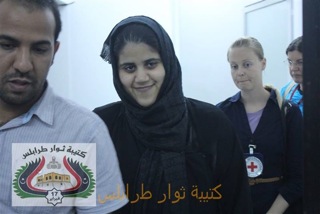
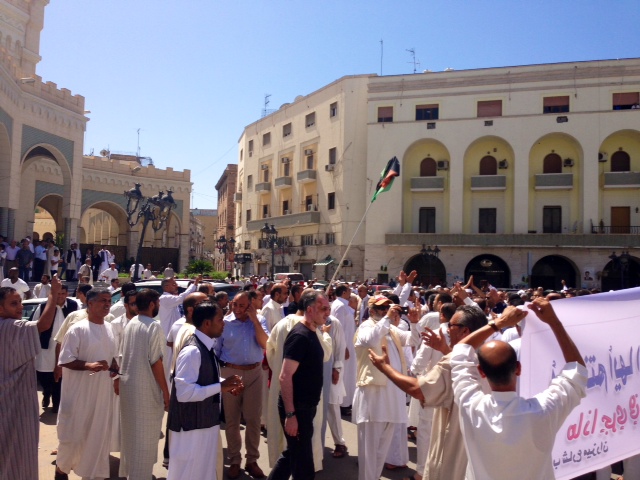
http://www.businessinsider.com/libyas-oil-exports-are-at-10-of-their-pre-war-levels-2013-9
TRIPOLI, Libya (AP) — Libyan officials say oil exports have plunged to less than 10 percent of their pre-war levels, falling to just 150,000 barrels per day.
September date confirmed for Saif and Senussi pre-trial hearing
By Ashraf Abdul Wahab and Tom Westcott.
Tripoli, 7 September 2013:
Qaddafi’s son, Saif Al-Islam, and former spy chief, Abdullah Senussi, will attend a pre-trial hearing on 19 September, Justice Minister, Salah Al-Marghani, has confirmed to the Libya Herald.
Although Zintani officials are adamant that Saif, who is being held in a prison facility in Zintan, will not be tried in the capital, Marghani appeared to believe that Saif would be among the 22 defendants scheduled to appear before a Tripoli court later this month.
“As far as I am concerned, the pre-trial chamber will be held in Tripoli on 19 September and there will be a number of people put in front of the judge,” Marghani said. “This is not the trial itself, but is a pre-trial where the judge will decide whether there is sufficient evidence to send those people to court or not.”
Only last week, however, Zintan insisted that it would not allow Saif to stand trial in the capital. A senior Zintani official told the Libya Herald that it was impossible to hand him over because Tripoli was under the control of outlaws.
Marghani batted away questions about negotiations with Zintan to hand over Saif, saying only, “there should be 22 people present.”
There is no such question mark hanging over Senussi’s attendance, as he is being held in an official Tripoli jail.
The International Criminal Court (ICC) is still demanding that Senussi and Saif be handed over to stand trial at the Hague, but Libya is determined not to let senior figures from the old regime be tried in international courts.
Anoud Senussi “freed” and flown to Sebha
By Ashraf Abdullah Wahab

Anoud Senussi today shown with an ICRC member
Tripoli, 7 September 2013:
Anoud Senussi, the daughter of Qaddafi’s former spy chief, is understood to have been released this evening by her kidnappers and flown to Sebha, where she was greeted at the airport by celebratory gunfire from members of the Magarha tribe, to which her family belongs.
The group that kidnapped “for her own protection” as she left Tripoli’s Al-Ruwaimi prison, said that her release had been made under the auspices of the International Commission of the Red Cross.
A picture published on the Facebook page of the Tripoli Revolutionary Brigade shows Senussi leaving a room, with someone who appears to be from the ICRC.
The release of the 20 year-old Senussi comes at the end of a several days of confusion. Senussi was driven out of Al-Ruwaimi last Monday, after being held in jail for ten months, for rentering the country on a false passport.
The three-car convoy in which she was travelling, which included a vehicle carrying a deputy justice minister, was stopped some 100 metres from the prison gates by five trucks of armed men, who seized Senussi.
There were immediate concerns for her safety. The Tripoli rumour mill went into overdrive with talk of multi-million dinar ransom demands and even assertions that she had already been murdered by her abductors.
On Wednesday, the Magarha tribe around Sebha briefly cut the power to water pumps on the Man-Made River. They threatened to stop all water flows to the west of the country, unless Anoud Senussi was freed. In response to this threat, people from Ghariyan began stopping trucks heading south to Sebha, detaining some 300 vehicles in 48 hours.
It was also on Wednesday that the first definite news of Senussi emerged. Sebha congressman Abdul Hadi Ahmed Ashrief told the Libya Herald she had been taken by men from the First Special Unit of the SSC, for her own protection. He added that she was now in Tripoli with family members but was expected to join her mother in either Mauritania or Egypt within a matter of days.
The point now at issue was whether Senussi was effectively a free agent or whether she was still kidnapped. Speaking to this newspaper yesterday, Justice Minister Salah Marghani appeared to have had no doubt that she remained a kidnap victim.
He indicated that talks were going on with the abductors. But he added: “I’m not commenting on this thing now until it ends. It’s at a critical point and I don’t want to cause harm to anybody.”
It would appear that those talks succeeded, bringing to an end a puzzling incident which has made unfavourable headlines around the world. Amnesty International was particularly critical of Senussi’s abduction, asking:”How can the Libyan authorities claim that they are able to deliver fair trials, and apply the law in the most prominent, politically-sensitive cases, when they are manifestly unable to ensure the basic safety of detainees?”
Zeidan’s government must go, says Grand Mufti
By Ashraf Abdul-Wahab.
Tripoli 7 September, 2013:
In a scathing attack on its performance in office, the Grand Mufti has demanded that the government of Ali Zeidan be sacked. Calling it incompetent, he said it had lost its right to remain its office. He is the latest to do so in a mounting campaign against it.
“The government’s failure to fulfill even the minimum requirements for its existence in power deprive it of its right to remain in office”, Sheikh Sadik Al-Ghariani said in a statement published last night. “It has no right to remain, ignoring its own incompetence, and wait until calamity befalls the country! History is unforgiving and the retribution of God is inescapable!”, his statement read.
Congress had to remove it – and quickly. It was not right, he said, that Zeidan could be appointed prime minister by a majority vote but removed only by a two-thirds vote.
The first duty of a government was to provide security for people and protection for them and their property, the Grand Mufti said. It had to be able to defend the country’s sovereignty and its resources. It had failed to do so.
Listing other duties of government, including law and order, upholding the public’s rights, transparency appointing properly qualified people to posts and clamping down on corruption, he said that it had betrayed the trust placed in it. It had sided with particular groups and parties, which he did not name, for sake of remaining in office.
He accused it of making empty promises. It had said that its patience with criminals was running out. “When will the government’s patience run out, I wonder!” he said. “The country’s wealth has been seized by force for an entire month if not longer, and we see criminals and outlaws numbers are in the increase since the government took up office!”
No government member could absolve himself from responsibility at these critical times, “The government members are equally responsible for what is happening,” he said. “No excuse shall be excepted.” He added: “For the government to remain in office with its inability to end the killing and oppression is, in itself, oppression and wrong.”
Using a football analogy, he accused the government of trying to gain extra time for play.
“Playing in extra time costs the country every day, every hour, vast sums of money, loss of life, loss of property, obliteration of institutions, the ruin of youth, theft, the loss of integrity, the undermining of sovereignty, and more – such as the path to the extreme chaos and lawlessness. Is this, I wonder, the latest road map that has been drawn up for Libya after all bloodshed and sacrifice of lives the country had offered!”
Calling time on the government, he insisted that Congress had to act “without delay” to ensure Libya’s stability and secure its oil wealth
Justice Minister says Anoud still kidnapped
By Tom Westcott and Ashraf Abdul Wahab.
Tripoli, 7 September 2013:
Justice Minister Salah Marghani yesterday said that former spy chief Abdullah Senussi’s daughter Anoud is still being held by her kidnappers, contrary to earlier reports that she had been been found and freed.
“As soon as the convoy left the prison she was kidnapped and it turned out to be someone who is now saying they kidnapped her to protect her,” Marghani told the Libya Herald.
The minister hinted that negotiations with the kidnappers were taking place. “I’m not commenting on this thing now until it ends,” he said, “it’s at a critical point and I don’t want to cause harm to anybody.”
“It’s not to clear to me what happened,” Marghani said, adding that he could not comment further on the case.
No-one seems to be prepared to say exactly what happened or what the current situation is. Senussi was released on Monday, after being held in jail for ten months after entering the country on a false passport. She left the Al-Ruwaimi prison in Ain Zara in a three-car convoy, which included the deputy justice minister, but was kidnapped almost immediately.
Congressman Abdul Hadi Ahmed Ashrief told the Libya Herald on Wednesday that the 20-year old had been taken by men from the First Special Unit of the SSC for her own protection. He added that she was now in Tripoli with family members but was expected to join her mother in either Mauritania or Egypt within a matter of days.
In an recorded interview, Senussi is heard saying that the men took her for her own protection. “They took me to protect me, afraid that people from any other side might kidnap me,” she said, adding that they had “treated me like their sister.”
Sources close to negotiations to resolve the issue have told the Libya Herald that there were disagreements within the ministry over the handling of Senussi’s release. The plan, the source said, had been for the deputy minister to take Senussi from the prison to a TV station for her to then speak of her treatment over the past ten months before then being taken to the airport to board a plane for Cairo.
300 Sebha-bound trucks held in water cut protest
By Ashraf Abdul Wahab
Tripoli, 6 September 2013:
Armed groups seized more than 300 south-bound trucks over two days in protest at the loss of water supplies with the cutting Man-Made River north of Sebha.
The gunmen, thought to come from Ghariyan, on Wednesday mounted four road blocks along the A4 highway which eventually leads to Sebha. In all 310 transport vehicles and their drivers were stopped and held, some for over two days.
However yesterday the trucks were released to continue their journeys south. It is not known if there were negotiations leading up to the removal of the roadblocks. One person claiming to speak for the armed group said: “ Anyone who dares to cut off water supplies to the capital, might as well be of Chadian nationality and should affiliate himself with Chad instead!”
Anti-government demonstrators call for general strike in Tripoli on Sunday
By Aimen Eljali.

Demonstrator outside the mosque in Algeria Square today demanding the Prime Minister be sacked (Photo: Aimen Eljali)
Tripoli, 6 September 2013:
Anti-government demonstrators demanding that Congress sack Prime Minister Ali Zeidan and his government called today for a general strike in Tripoli on Sunday. The demonstrators were responding to the power and water cuts that are bringing misery to the capital. The call came this afternoon when some two hundred protestors gathered in Algeria Square in Central Tripoli after Friday prayers.
All shops, businesses and government institutions, with the exception of hospitals, should stay closed on Monday said a statement read out at the protest. The demonstrators had started from outside the mosque in Shara Mizran and moved to the Dawa Al-Islamiyya Mosque in Algeria Square.
Rolling electricity cuts have been taking place in the capital since the end of Ramadan but have been getting longer in recent days because of fuel supplies not reaching the power stations supplying the capital. Cuts are now five hours and even longer. The water cuts started three days ago and have affected most of the capital.
People in Tripoli, protestors told the Libya Herald, had been patient with the government but their patience was now exhausted – the city and country were now in a crisis and it had to go. Zeidan, they claimed, had lost control of the situation.
In an online poll earlier this week 83 percent of respondents said that they have experienced power cuts of between three and seven hours since Ramadan.
Bottled water doubles in price as tanks run dry in Tripoli
By Mariam Muttawa.
Tripoli, 5 September 2013:
As water cuts spread in Tripoli and people stock up on supplies of bottled water, shopkeepers across the capital are hiking prices.
This afternoon, a seven-litre bottle had gone up to LD 2 from LD 1, with many outlets across the capital selling 1.5 litre bottles for LD 1.
Almost all of Tripoli is now without water, after being hit by cuts. The city centre has had no water for the past two days. Shortages have spread, although many residents were unaware of the issue because they have large water tanks.
Residents in Drebi, Hay Demashque, Hay Al Andalus, Ben Ashour and even Sabaa this morning reported water flow down to a trickle, if at all, as they used up the dregs of the tanks.
Not everywhere has been affected. Despite the cuts, some public gardens, including those in Bu Sleem, were still being watered with sprinklers last night.
Coming on top of continued electricity outages, anger at the cuts is growing in the city. Last night there was an impromptu demonstration in Martyrs Square demanding Congress sack Prime Minister Ali Zeiden and his government.
Frustrated residents said that the situation was intolerable and that they had had to live with power outages of up to five hours at a time in parts of Tripoli since the end of Ramadan.
Earlier in the day, Zeidan had said that the water and electricity cuts were the result of the oil strikes. However, the water problems would be over within hours, he promised.
That has not proved the case.
Now water cuts on top of Tripoli’s electricity and fuel misery
By Michel Cousins.
Tripoli, 4 September 2013:
Water supplies to parts of central Tripoli were cut yesterday evening bringing further anguish and exasperation to a city already hit by rolling electricity outages and long queues at petrol stations.
Many in the capital attribute the stoppage to action by members of the southern Megraha tribe who had cut the Man-Made River following the kidnapping of Abdullah Senussi’s daughter Anoud on Monday. However, they restarted the flow a few hours later following negotiations with Water Resources Minister Alhadi Suleiman Hinshir. She has since been reported freed.
At his press conference today, the Prime Minister, Ali Zeidan, confirmed that there had been negotiations, saying simply that those who had tired to cut the water had stepped back from such action. However, the water cuts, along with the electricity outages, were the result of the oil field and terminal strikes and blockades, he said – giving no further explanation. The water problem would be resolved within hours, he predicted.
For its part, the Ministry of Water Resources would give no reasons for the stoppage. A spokesman refused to comment, saying that the Minister, Alhadi Suleiman Hinshir, would be making a statement later.
However, the Libya Herald has been told that water pumps at the Sidi Sayeh reservoir south of Tripoli had not been working because of the power cuts. Another report claimed that pumps near Ain Zara had been sabotaged.
Neither can be verified.
Coming on top of the electricity cuts and the long waits to buy petrol, the water crisis has noticeably increased public resentment over the government’s performance. In coffee shops and shisha cafes, it is the major subject of conversation.
There were water cuts lasting almost a week in Tripoli 11 months ago when the power supply near Bani Walid to the water pumps that fill the reservoir at Sidi Sayeh was cut.
TRIPOLI, Libya (AP) — Libyan officials say oil exports have plunged to less than 10 percent of their pre-war levels, falling to just 150,000 barrels per day.
The drop has been blamed on protests by oil facility guards who word for the Defense Ministry. Libya was exporting 1.6 million barrels before the 2011 war that toppled dictator Moammar Gadhafi.
An official at Libya's National Oil Corporation said exports were at 150,000 barrels per day on Saturday. He spoke anonymously in line with regulations.
The corporation's website said this week that losses from recent strikes and protests had reached more than $5 billion.
Prime Minister Ali Zidan is facing calls for his ouster by the country's Islamists and residents fed-up with the government's inability to provide stability. The capital is facing water and electricity shortages.
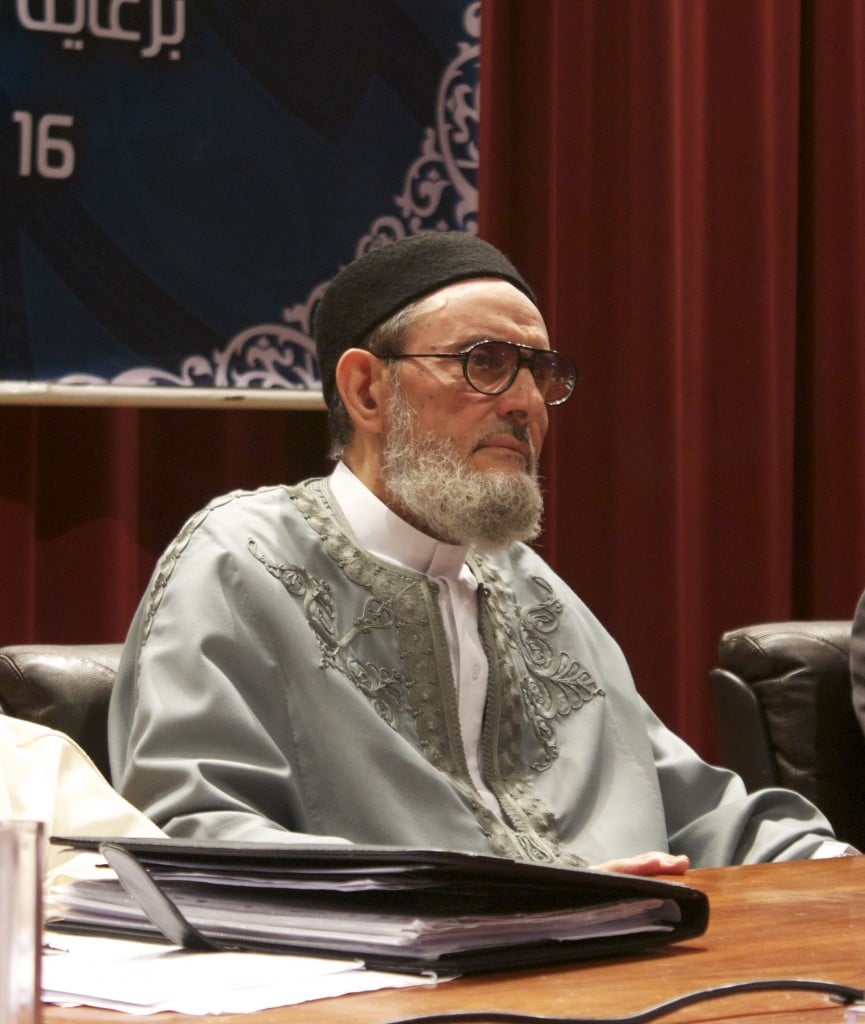
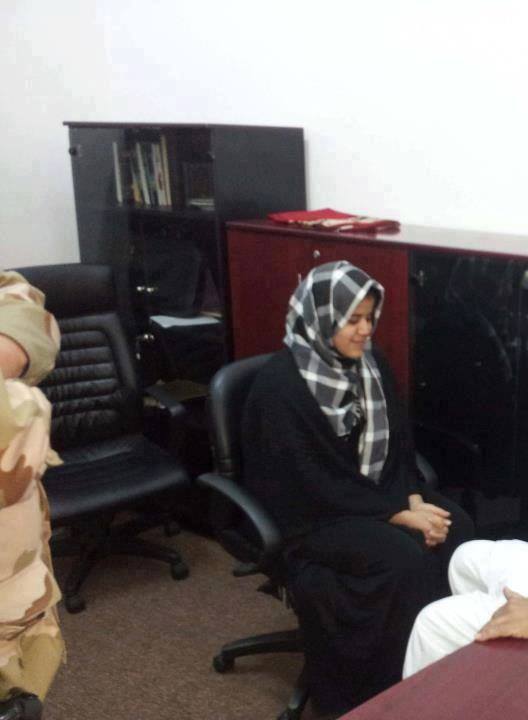
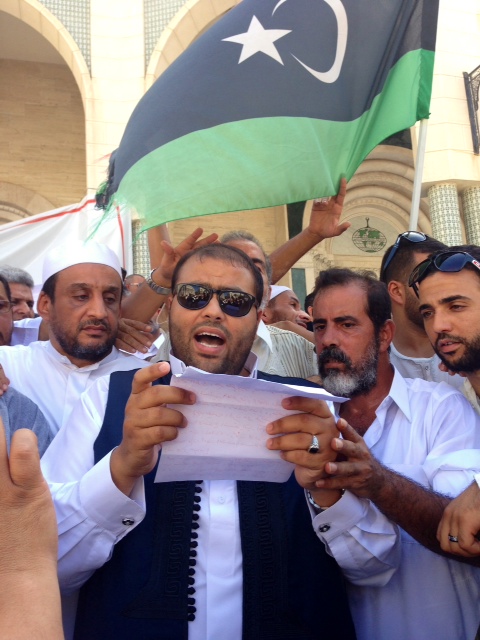
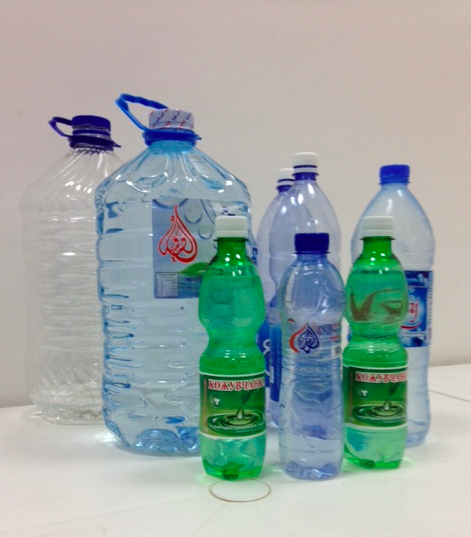
No comments:
Post a Comment